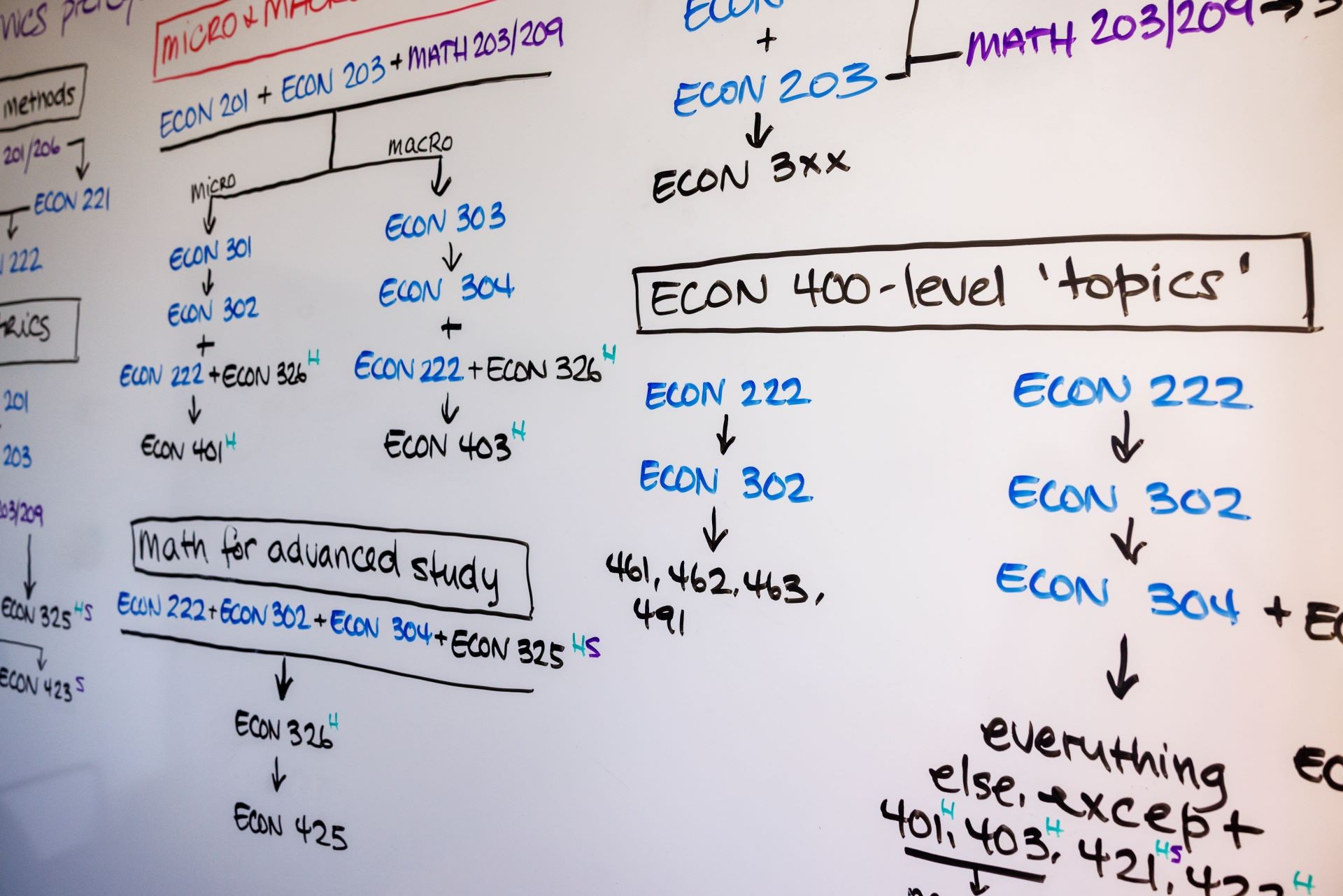Programs
Areas of focus include development, finance, public policy, international trade, industrial organization, labour economics, theory and econometrics.
Undergraduate programs
Economists provide essential knowledge for today's business leaders and policy makers who must constantly face decisions with economic dimensions. The ups and downs of economic activity, interest rate volatility, budget deficits and surpluses, and the problems of continued economic growth are all at the forefront of public debate.

Graduate programs
Our graduate programs offer a strong foundation in economic theory, quantitative methods and real-world applications. MA students specialize in one field, while PhD students pursue advanced coursework and research in two areas. The Diploma in Economics is tailored for those with an undergraduate degree seeking applied, policy-focused training in economics.

Experiential learning
Co-op program
Our Co-op program is available to both BA and MA students. Co-op allows you to gain work experience while studying and understand real-world applications of economics.


